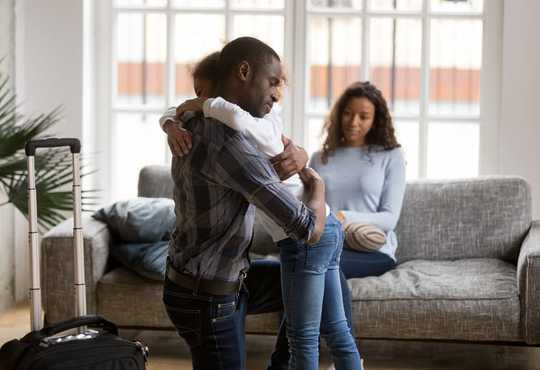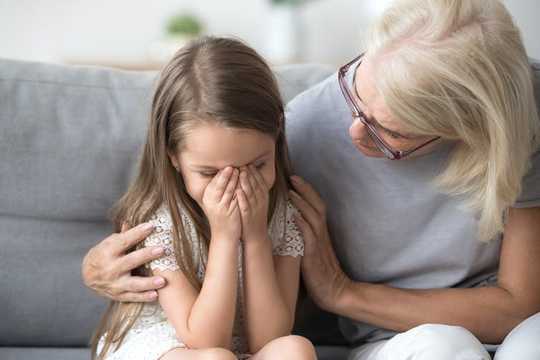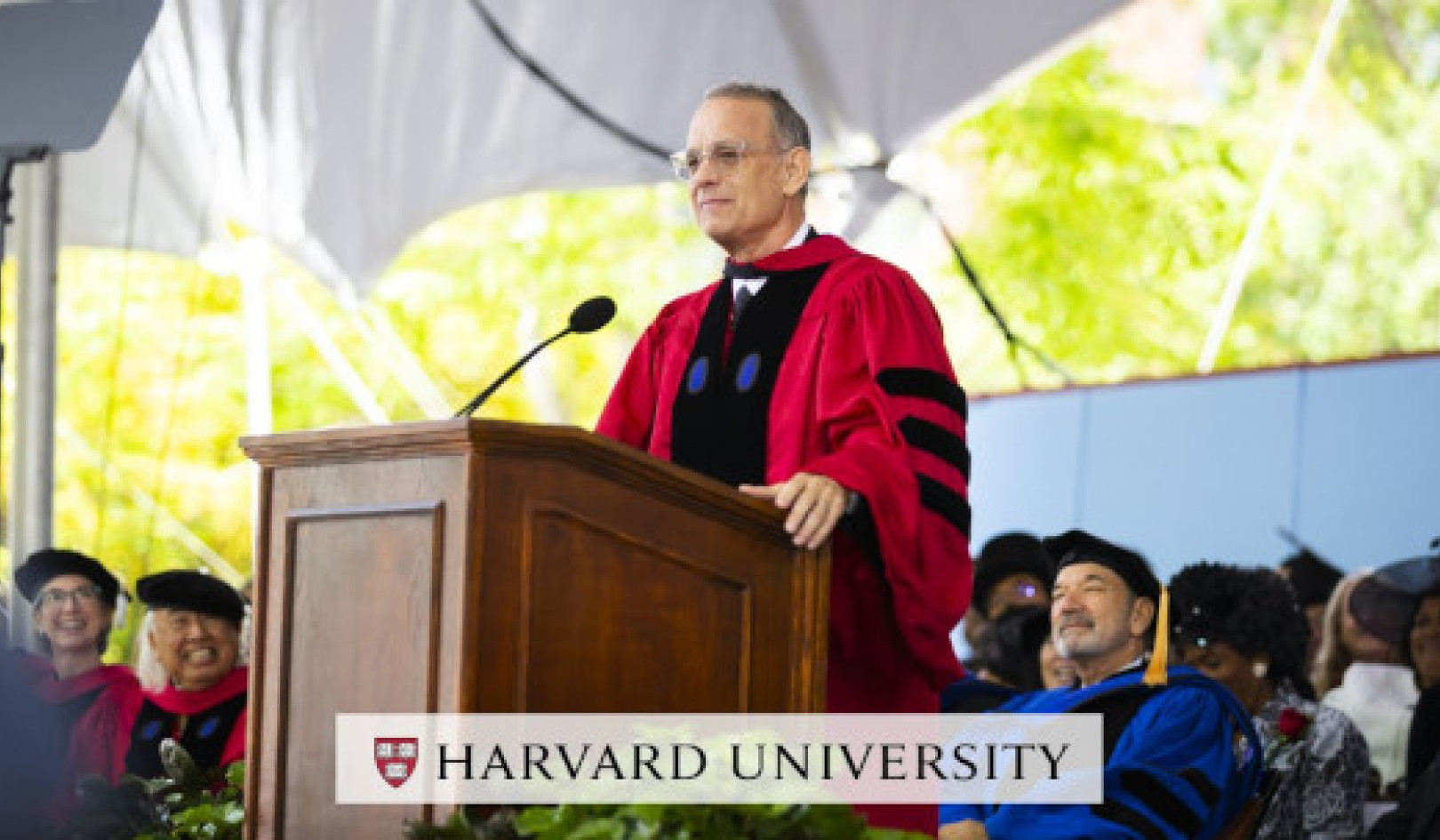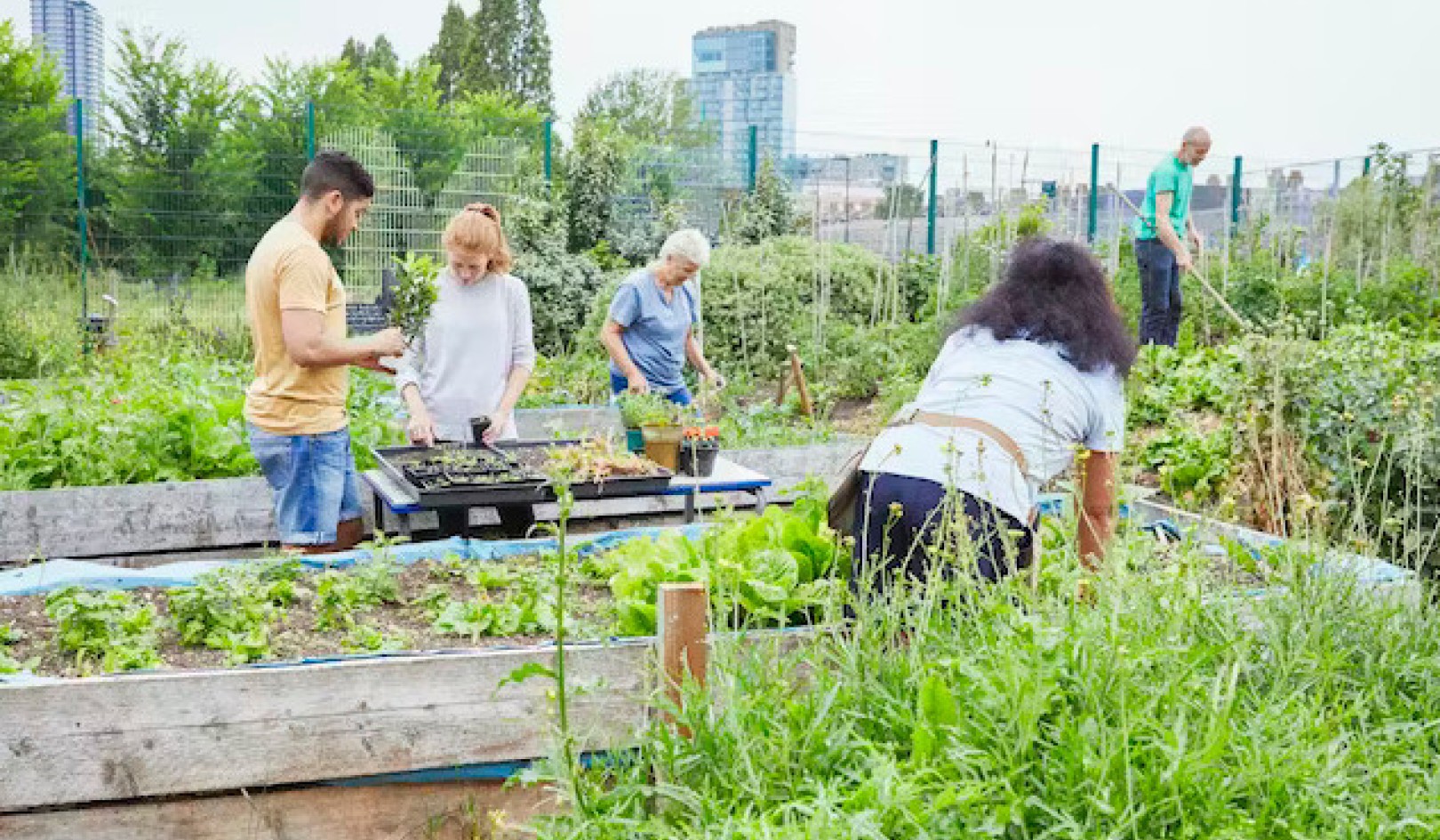
Children found it particularly difficult when parents couldn’t agree on where they would live. Shutterstock.
When parents separate or get divorced, it inevitably disrupts the lives of children, and can take a toll on their mental wellbeing. Over time, children learn to accommodate the changes – some more successfully than others. It’s estimated that one in three children under the age of 16 in the UK experience their parents’ separation.
Parents often worry about how best to support their children, so that they can adjust to the changed family situation as successfully as possible. For my latest research, I conducted a comprehensive survey of 34 young adults, aged 18 to 30, reflecting on their childhood experiences of separation and divorce. For some, their experience was as recent as one to three years ago – for others, it was much further behind them.
I found that most young people end up accommodating their parents’ separation well over time. Even so, my results indicate that certain factors can help or hinder children, as they adapt to this life-altering event.
An end to conflict
The most important thing, which helped children adjust, was when separation brought an end to conflict between their parents. This might not happen until initial arrangements about where children would live and when they would have contact with each parent were put in place. But when it did, my participants reported an immediate sense of relief, which helped them view the separation as a positive improvement in their lives.
Communication also made a big difference: being told what was going to happen in advance by their parents helped children make sense of their changing family situation. For young children, this often meant being told more than once. Children benefited from having the opportunity to talk about their parents’ separation, and receive support from other family members, such as aunts and grandmothers. Talking to siblings and friends – particularly trusted friends who had experienced their own parents’ separation – was also found to be helpful.

Family support makes a big difference. Shutterstock.
Children who were able to stay in contact with both parents, as well as their friends, accommodated separation and divorce better. It also helped if further changes were kept to a minimum: for example, if children continued to live in the same area and attend the same school after separation. Where this happened, children felt their views had been taken into account in post-separation arrangements – they felt they “mattered” to their parents. This ultimately brought about a more positive view of the separation.
Losing touch
Children who lost contact with the parent they didn’t live with, but said this was what they wanted, tended to show a high level of accommodation. But those who did so involuntarily accommodated the separation less well. My research found that they viewed their parents’ separation as neither a positive improvement, nor a significant loss, and showed a medium level of accommodation.
Few of these children were told about the separation in advance, and loss of contact meant they did not see their needs taken into account. While they did not experience conflict between their parents directly, they were often aware of their resident parent’s dislike of the other parent and felt “silenced” from talking about them at home, which led to a sense of divided loyalties.
These children appeared very isolated, having access to few sources of support within the family, no support outside the family and feeling unable to talk to anyone about the changes. Over time, they created an emotional distance from the separation, meaning they treated it as a life event and moved on.
Continuing conflict
Children who continued to experience conflict between their parents after separation accommodated the changes less well. My participants described feeling “caught in the middle” of their parents’ conflict, particularly at handovers, and feeling responsible for younger siblings. This aligns with findings from many previous studies. They viewed their parents as being preoccupied with their own issues and concerns, and failing to take their children’s needs into account. They also felt unable to talk to anyone in the family about the separation, for fear of making the conflict worse.
Children found it particularly difficult when parents couldn’t agree on where they would live and contact arrangements, requiring them to talk to social workers as a result of family court proceedings. As children, my participants said they struggled to accept the post-separation changes, and as young adults their parents’ separation remained a very significant loss in their lives.
Having a sense of how these young adults experienced their parents’ separation in childhood, and the factors that helped them accommodate the changes it brought about well, can help guide parents who are separating now. It can inform their choices, and those of their families, to make sure their children have the best chance of accommodating separation well over time.![]()
About the Author
Susan Kay-Flowers, Senior Lecturer in Education and Childhood Studies, Liverpool John Moores University
This article is republished from The Conversation under a Creative Commons license. Read the original article.

Related Books:
Here are 5 non-fiction books on parenting that are currently Best Sellers on Amazon.com:The Whole-Brain Child: 12 Revolutionary Strategies to Nurture Your Child's Developing Mind
by Daniel J. Siegel and Tina Payne Bryson
This book provides practical strategies for parents to help their children develop emotional intelligence, self-regulation, and resilience using insights from neuroscience.
Click for more info or to order
No-Drama Discipline: The Whole-Brain Way to Calm the Chaos and Nurture Your Child's Developing Mind
by Daniel J. Siegel and Tina Payne Bryson
The authors of The Whole-Brain Child offer guidance for parents to discipline their children in a way that promotes emotional regulation, problem-solving, and empathy.
Click for more info or to order
How to Talk So Kids Will Listen & Listen So Kids Will Talk
by Adele Faber and Elaine Mazlish
This classic book provides practical communication techniques for parents to connect with their children and foster cooperation and respect.
Click for more info or to order
The Montessori Toddler: A Parent's Guide to Raising a Curious and Responsible Human Being
by Simone Davies
This guide offers insights and strategies for parents to implement Montessori principles at home and foster their toddler's natural curiosity, independence, and love of learning.
Click for more info or to order
Peaceful Parent, Happy Kids: How to Stop Yelling and Start Connecting
by Dr. Laura Markham
This book offers practical guidance for parents to shift their mindset and communication style to foster connection, empathy, and cooperation with their children.























